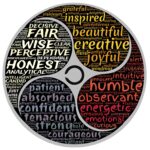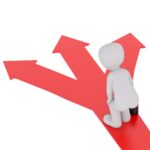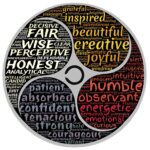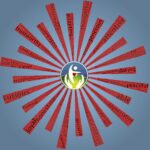The first step in making meaningful changes in your life involves gaining a better understanding of yourself in essential areas that impact your life. This self-knowledge can provide you with direction as you try to maximize your efforts at change. Self-knowledge can also help you be more efficient and focused – and more effective – in producing change because you’ll know precisely what you need to work on.
In developing greater self-understanding, you must recognize both your strengths and your weaknesses. Most people love to talk about their strengths, but don’t like to admit that they have weaknesses. I disagree with Marcus Buckingham, the co-author of Now, Discover Your Strengths, who asserts that the way to achieve goals is to focus on your strengths. This approach may work for some parts of your life, for example, a job that involves one or two highly specialized skill sets, such as an accountant or a computer programmer. But most aspects of life require a constellation of competencies, so the “focus on your strengths” model will actually limit your ability to make substantial changes in your life.
Let me explain why. Most people think that the ability to achieve their goals will depend on their greatest strengths. For example, a man may believe that his outgoing personality and social skills will enable him to develop a healthy romantic relationship. The truth is, however, that you are only as good as your biggest weakness. If that man lacks the empathy and emotional openness to build an intimate relationship, his other abilities will only take him so far.
Additionally, focusing on your strengths doesn’t address the causes of your inability to make changes. To overcome the real obstacles to change, you need to acknowledge and understand them before you can remove those obstacles.
Think of your strengths and weaknesses for getting promoted in a new job in, say, banking, as a mathematical equation. On a scale of one to ten, where 1 is very poor and 10 is the best, if you have very good financial analysis skills (8), but you are quite poor at relationship building (2), then your over-all performance would be moderate (8+2=10 out of a possible 20). If you focused on and improve your analytical capabilities (say, from 8 to 9), you wouldn’t improve that much over all because you were already capable in that area of your work (9+2=11). But if you improve your relationship skills (say, from 2 to 6), then your over-all performance would rise significantly (8+6=14). Of course, you want to continue to build your strengths, but the more you improve your weaknesses, the better you’ll be able to make the changes you want.
Why Self-knowledge?
Nobody likes to admit, much less focus on, their weaknesses. Yet, when you gain self-knowledge – both appreciating your strengths and confronting your weaknesses – you are opening up new possibilities for personal growth and goal attainment. So be receptive to self-knowledge. Rather than being uncomfortable with facing your weaknesses, be willing to consider the information in a positive and constructive way. When weaknesses are identified, it doesn’t mean that you’re incapable of change. It may be that you haven’t had to use these skills in your life to date or you’ve been able to hide them with the strengths you have. And the great thing about self-knowledge is that it gives you the power to makes changes in those weaknesses. The information you gain from actively seeking self-knowledge will enable you to really understand both your strengths and weaknesses, and plot a course to maximally leverage both to produce meaningful change and accomplish your goals.
Gaining Self-knowledge
There is no magic to gaining self-knowledge. You must actively seek self-knowledge both within and outside of yourself. You can sit down and simply ponder your existence, examining your life to that point and looking for impactful experiences, seminal relationships, and persistent patterns.
You can learn about yourself by asking others, such as family, friends, and co-workers, for feedback about who you are. Often, other people can provide us with a mirror that best reflects our strengths and weaknesses. And life has a way of communicating powerful messages about what works and what doesn’t in our lives. Important lessons can be gained from life experiences, if we’re open to them.
Valuable self-knowledge can also be garnered from outside resources. Books, articles, and workshops by experts and laypeople alike may offer information, perspectives, and insights that prove to stimulate self-knowledge. Well-validated psychological assessments, either found on line or administered by an expert, can also be illuminating by making the ethereal nature of the “self” more tangible.
Finally, one-on-one work with a qualified psychotherapist can enable you to explore in greater depth the who, what, why, how, and where of your being. These trained professionals can help you clarify the specific changes that you would like to make in your life and act with you as detectives to help you uncover the obstacles that may be preventing you from the desired change.
Using Self-knowledge
Self-knowledge is a powerful tool for building the “infrastructure” necessary for change. With it, you have the information you need to focus your time and energy on exactly what you want to change and also have taken the initial step in identifying the process to facilitate that change.





